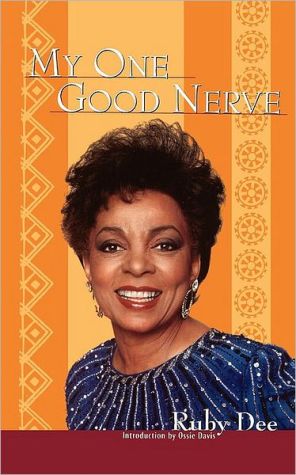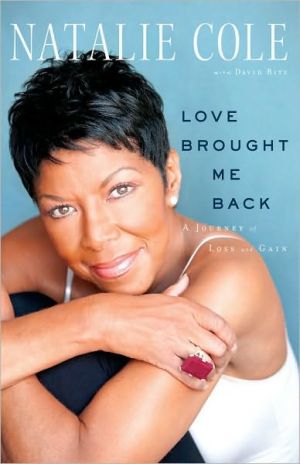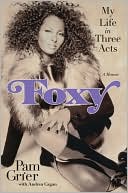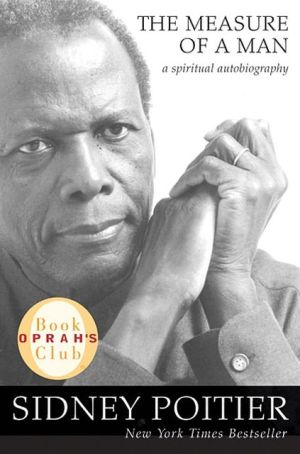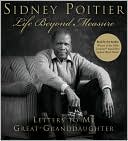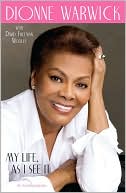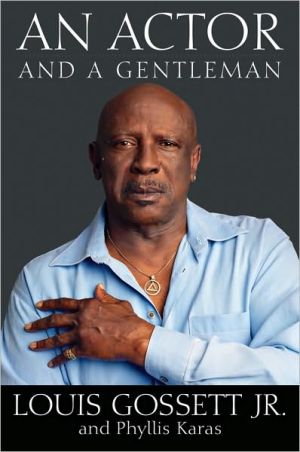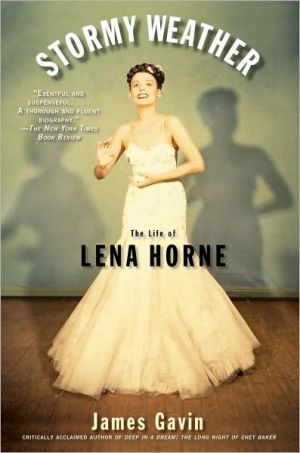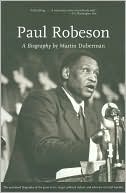My One Good Nerve
Intimate reflections on loving and living from an American treasure.\ "My One Good Nerve draws me back into my sweetest past . . . a work of memory and art."—Maya Angelou.\ My One Good Nerve is an exuberant collection of writings in the down-home tradition by that incomparable icon of the human spirit, Ruby Dee. Married for 50 years to fellow actor Ossie Davis, Dee has led an astonishingly full life. But she has never forgotten where she comes from as an African American woman. Fans who have...
Search in google:
Intimate reflections on loving and living from an American treasure."My One Good Nerve draws me back into my sweetest past . . . a work of memory and art."—Maya Angelou.My One Good Nerve is an exuberant collection of writings in the down-home tradition by that incomparable icon of the human spirit, Ruby Dee. Married for 50 years to fellow actor Ossie Davis, Dee has led an astonishingly full life. But she has never forgotten where she comes from as an African American woman. Fans who have admired and drawn strength over the years from Dee's outspoken human rights advocacy and unforgettable characters are rewarded here with many glimpses into her memories and convictions. Based on her long-running one-woman show, this book is an inspiration and a blessing.Ruby Dee (New Rochelle, NY) grew up in Harlem and graduated from Hunter College in New York City. Inducted into the Theater Hall of Fame in 1989, she was an original cast member of Broadway classics such as A Raisin in the Sun and South Pacific and appeared in Spike Lee's Do the Right Thing and the landmark adaptation of Alex Haley's Roots. She performs her one-woman show, My One Good Nerve, in theatres across the country.Publishers WeeklyIn December the co-authors will mark their 50th wedding anniversary, an almost unheard of milestone for two stars of the performing arts this century. Even before their marriage, according to Davis, "we were in love, head over heels, and stuck with each other forever!" Rather than just telling the story of a successful marriage, however, their book (related in alternate voices) provides a panorama of the 20th-century African American experience, or, as they label it, The Struggle. Both socialists and militant battlers for African American rights, Davis and Dee have known, and worked with, such leaders as W.E.B. DuBois, Paul Robeson, Martin Luther King and Malcom X. And they haven't shied away from the consequences of taking a public stand: during the flowering of McCarthyism, Dee was called a Communist sympathizer in the press. Still, with refreshing honesty, they steer clear of self-congratulation, as when Davis tells how, as a little boy, in exchange for a few pieces of peanut brittle, he acquiesced as some racist local cops mistreated him. Of course, Dee and Davis also chronicle their careers as pioneers on stage, film and television, from their involvement with New York's African American theater scene during the Depression to their work alongside stars like Sidney Poitier and Lena Horne. From Davis's youth as a "Negro boy surrounded by white hoods, burning crosses, and stories that brought the smell of burning flesh," to Dee's concern for the future of African American theater, this is a compelling read, effectively evoking the challenges and rewards that have attended the authors' roles as black leaders over the past 60 years. Photos not seen by PW. Appendix, index. Agents, Betty McCort and Susan Crawford. (Nov.) FYI: Also out this November is Ruby Dee's My One Good Nerve, a collection of verse based on her one-woman show of that title. (Wiley, $16.95 192p ISBN 0-471-31704-7)
SOUNDS IN THE DARKNESS.Remembrance.Three Finger Freddie.While Waiting.Aunt Zurletha.Bag Lady.LET'S TALK ABOUT LOVE.I Just Couldn't.Evening Lady Lament.A Real True Love Story.Ode to O.D.I Am Somebody.FALLING THROUGH MY ARMS.The Mighty Gents.Go On.Owed to a Funny Man.Tupac.MOSTLY LAUGHING.Humpty Dumpty.Compare.Some People!Shoe Lady #1.Shoe Lady #2.Shoe Lady #3.Jack and Jill.To Pig or Not to Pig.Honkies Is a Blip!TRIBUTES.For James Baldwin.Elders and Partisans.For Roger Furman.The Photographer.George Houston Bass.Lionel Notes.Mamie Phipps Clark.All That Love.Toni Cade Bambara.Thinking about Carolyn M. Rodgers.Thinking about Diana Sands.For My Brother-in-Law, Bill Morgan.Sarah and John--We Think of Them Together.For Marvin Gaye.CAN'T DO WITHOUT YOU.I Miss the Russians.The Half-People.ISN'T LIFE PECULIAR?Time To.Daughter.The Dream Droppers.The Pain Taker.TODAY IS OURS.My One Good Nerve.Time. Time.Double Dutch.Calling All Women.Afterword.
\ Publishers Weekly - Publisher's Weekly\ In December the co-authors will mark their 50th wedding anniversary, an almost unheard of milestone for two stars of the performing arts this century. Even before their marriage, according to Davis, "we were in love, head over heels, and stuck with each other forever!" Rather than just telling the story of a successful marriage, however, their book related in alternate voices provides a panorama of the 20th-century African American experience, or, as they label it, The Struggle. Both socialists and militant battlers for African American rights, Davis and Dee have known, and worked with, such leaders as W.E.B. DuBois, Paul Robeson, Martin Luther King and Malcom X. And they haven't shied away from the consequences of taking a public stand: during the flowering of McCarthyism, Dee was called a Communist sympathizer in the press. Still, with refreshing honesty, they steer clear of self-congratulation, as when Davis tells how, as a little boy, in exchange for a few pieces of peanut brittle, he acquiesced as some racist local cops mistreated him. Of course, Dee and Davis also chronicle their careers as pioneers on stage, film and television, from their involvement with New York's African American theater scene during the Depression to their work alongside stars like Sidney Poitier and Lena Horne. From Davis's youth as a "Negro boy surrounded by white hoods, burning crosses, and stories that brought the smell of burning flesh," to Dee's concern for the future of African American theater, this is a compelling read, effectively evoking the challenges and rewards that have attended the authors' roles as black leaders over the past 60 years. Photos not seen by PW. Appendix, index. Agents, Betty McCort and Susan Crawford. Nov. FYI: Also out this November is Ruby Dee's My One Good Nerve, a collection of verse based on her one-woman show of that title. Wiley, $16.95 192p ISBN 0-471-31704-7\ \ \ \ \ Lynn KarpenFunny, touching and sensitive. -- The New York Times Book Review\ \ \ Kirkus ReviewsWith this painfully sincere collection of poems, stories, and character pieces, Ruby Dee joins the unhappy pantheon of actors, such as Jimmy Stewart and Leonard Nimoy, who have strayed disastrously into scribbling. Most of these pieces are drawn from Dee's traveling one-woman show, also called My One Good Nerve. And so, the pieces may perform better than they read. You can guess where Dee as performer might pause dramatically, where she'd slip fully into a character, and where she'd build cadences eloquently, but the words and lines themselves, ranging from prosaic to warmed-over to embarrassing, do not equal her actor's gifts. She suffers from the misconception, common to many amateur poets, that adapting prose by shortening line lengths and inserting a few repetitions will indeed result in a poem: "Tupac./Spelled backwards—-/Caput. Meaning/ Finished. Over. Ended. Done./Twenty-six was it?/Oh my God. So young/Mouths drop. Stop in/Unbelieving anguish and surprise " Her writing is arranged here loosely according to theme—-a section on love, an aggregation of "comic" musings, grouped tributes to African-American heroes, and a woman-power wrap-up. There are well-intentioned allegorical musings on racism, fractured fairy tales and nursery rhymes, poems "celebrating" everyone from James Baldwin to Marvin Gaye and it is all, with barely the breath of exception, misconceived, mishandled, and misbegotten. Dee writes what she knows, which is part of the problem. She's piggybacking off tired modes and models, and shows neither the gifts nor the inclination to create anything original (or expertly derivative). All she has to offer is earnestness. As Oscar Wilde put it, "A littlesincerity is a dangerous thing, and a great deal of it is absolutely fatal." \ \
